THE TRINITY INQUIRER



Founded August 27th, 2020
Contents:
- On Curiosity - Editorial - Page 1
- Nuclear Fusion: The Future of EnergyOpinion - Page 2
- The Paradox of Economic Growth - OpinionPages 3&4
- Embracing Expectations - Opinion - Page 5
- Is Gravity That Important? - Opinion - Page 6
- On Semantics - Opinion - Pages 7&8
- How Does Language Shape Our Thoughts and Reality? - Big Questions - Pages 9&10
- How Good Are Democracies Really? - Big Questions - Pages 11&12
- Robotics Club - Clubs & Societies - Pages 13&14
- Challenge Yourself - Competitions & Challenges - Pages 15&16
- The Destruction of My Childhood Innocence
- Humour - Page 17
- KenKen Puzzles - Puzzles - Page 18
Contributors:
Sage Lingam, Jerrard Chan, Evan Liu, Alex Zhang, Austin Wells, Angus Mackey, Edward Peng, Jay Cleland, Mrs Angela Kotsiras, Lucas van den Berg, Alastair Murphy

As you may have noticed from our barrage of emails last term, we held an open invitation to write in these coveted leaves of The Inquirer. With the unusually sizeable contents of 11 articles, we had a whole lot of interest (making this the longest Inquirer edition… ever) so we’d like to say a huge thank you to everyone who contributed. We’re especially glad to have had submissions from all over the school in such a wide range of areas, extending from science and engineering to language and philosophy, and even to the not so serious (ahem page 17), so regardless of your tastes we’re sure you’ll find something that sparks your interest.
Speaking of interest, (forgive the shameless segue) or rather curiosity, I’d like to very briefly pontificate on the importance of it. It’s something that is all too easy to forget about right now, particularly in our busy school lives where admittedly learning can begin to feel more like a chore than something interesting or exciting - I’d be lying if I said we haven’t all been there. But if we pursue our interests, maybe read an article or watch a video about this rover on Mars or that ancient civilisation, it might just remind you of the joy of learning and even possibly make that double maths period a touch more palatable.
So, take the time to look into what you’re genuinely curious about just for the sake of it (and possibly even pen an article about it for The Inquirer), it’ll make your journey over the sometimes dusty and rocky terrain that little bit better.
Enjoy perusing and pondering…
- Alastair MurphyOn the 5th of December 2022 a team at the Lawrence Livermore National Laboratory in the United States announced that they had “conducted the first controlled fusion experiment in history to achieve fusion ignition” – a breakthrough in the race towards sustainable energy sources. But what does this mean?

Nuclear energy can be produced using two different methods: fusion and fission. Fission has been successfully used for decades and involves the splitting of a large, heavy atom, most commonly uranium. Fission energy currently contributes approximately 10% of the world’s power, whilst its counterpart, fusion, has yet to become a commercialised form of energy.
centred around plasma instabilities. There are many circumstances where plasma is unstable, and this means that when it is disturbed these disturbances will grow, rather than be damped out. Magnetic confinement seeks to suppress the instability and disturbances of plasma by confining it in a donut shaped chamber, a Tokamak, with strong magnetic fields. This chamber is supplied with enough heat and energy, reaching tens of millions of degrees, to enable nuclear fusion to occur.
Inertial confinement, on the other hand, works by directing extremely intense lasers on hydrogen isotopes to heat and compress them, eventually causing them to fuse into helium. Once they have fused into helium the mass of the helium nucleus is less than the sum of the two original nuclei, so where has this left-over mass gone? This mass has been converted into energy according to Einstein’s famous equation: Energy=mc2. This is the energy which researchers hope to harvest and utilize. The key to nuclear fusion is that the energy that is released from the fusion is greater than the energy required to initiate the fusion; thus, there is net gain in useful energy.
The quest for nuclear fusion as a form of energy began in the 1930s when Hans Bethe made the connection that nuclear fusion powered the sun, and in turn had the potential to produce energy on Earth. Initially, fusion research was pursued clandestinely by the United States, the United Kingdom and what was then the Soviet Union until it was declassified due to limited relevant military applications. In the following decades fusion research has been carried out with peaceful cooperation between countries.
As the 1960s rolled over, two main approaches to achieving nuclear fusion emerged: magnetic confinement and inertial confinement, both being
The International Thermonuclear Experimental Reactor, the largest fusion project which is supported by the EU, Russia, China, the U.S and other countries is set to commence in 2035. This project aims to explore and resolve engineering complications regarding fusion, and in turn, pave the way for commercialized fusion power plants. However, we are still a long way away from commercializing nuclear fusion and establishing it as a reliable energy source: most experts believe that it may be another 30 years until this happens. As such, while nuclear fusion may not single-handedly solve the climate crisis, it will undoubtedly play an integral role in the second half of the century, assisting in meeting the demand of our energy-hungry planet without simultaneously destroying it.
- Sage Lingam
As I worked through a worksheet from my Understanding Commerce class, I stumbled upon a question which stumped me. And as an avid economics geek, I never really had too much trouble working through textbook questions, but this question really perplexed me. The question read: “Explain why it is important for an economy to grow each year.” At first, I thought, ah, just another question, but when I placed my eager hands on the keyboard, ready to type a boring 200-word response, my brain froze. I stared at the question blankly, confused, realizing the depth of the question. I have just always taken for granted that economic growth was necessary, without realizing why. From all the news, countless websites, and just eavesdropping general grownup economic related conversations, the talk is all pointing towards growth. But why? I thought for a bit and…then the bell rang. Oh well, time for another uninspiring double English (Sorry Mr Wright).
Anyway, after I went home that day, I couldn’t seem to get the question out of my mind, gnawing at my brains. The obvious answer was to increase the standard of living for individuals. Many economists believe that a growing economy is imperative to continually improve the quality of life on Earth, and if it comes to a halt, there would be less resources to be shared among the population.
been better to be alive. Global life expectancy has more than doubled in the past century, rising to an all-time high of 72 years. Two centuries ago, 8 in 10 people still lived in extreme poverty, today it’s fewer than 1 in 10. War, disease, and natural
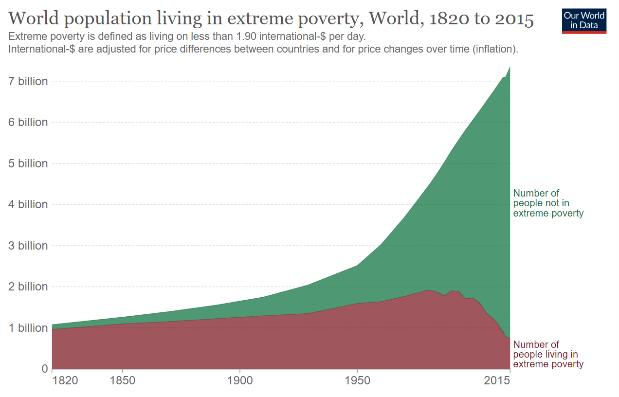
Source: Ravallion (2016) updated with World Bank (2019)
But does economic growth truly ameliorate the living standards, and thus happiness, for individuals? On paper, it seems like it has never
Source: CBPP calculations based on U.S. Census Bureau Data disasters claim fewer lives than ever before. Two centuries ago, 88% of the world’s population was illiterate, now it’s only 10%. Heck, the average person in the US is apparently living better than the Roman emperors of the past. So, given that we are leading lives even more luxurious than emperors, why aren’t we all experiencing constant and overwhelming happiness? To answer this, we need to understand that human beings are subjected to hedonic adaption, referring to the tendency of returning to a stable level of happiness after positive or negative life changes. This means that as people adapt to their improved circumstances, these new conditions will quickly become their baseline level of happiness. Take for instance, a person who drinks a regular coffee from his local barista. Then, he suddenly gets gifted one year’s worth of the most exotic and delectable beans from Brazil. The first few sips, the first few drinks, may taste like a cup of explosiveness and joy, but after a few days, weeks, months, they start to feel as though this once-beloved cup of premium coffee is just another regular cup of coffee. The past has taught humanity, time and again, that material gain alone will not fulfil our deepest needs.
Some may argue that economic growth can somewhat assist in the process of achieving maximum happiness, and even if it is the case, this growth has not been experienced equally among all populations. Income inequality has massively surged in society as a result of this lopsided growth. This growth is mostly powered by the bottom 99%, yet the top 1%, made up of the managers of multibillion dollar conglomerates, reaps the fruits of their hard work. This stark disparity has given rise to a troubling trend of the weakening middle class and the rapid deterioration of the lower-income class. The scenario that we are being faced with doesn’t only hamper social cohesion but also, in the long run, reduces consumer spending power and limits demand for goods and services.

To delve further into the core of the subject, we must understand what actually constitutes economic growth. And how can we gauge it? Economic growth is the vibrant pulse of a nation’s progress, a sustained increase in production of goods, and is measured by adding up the monetary value of everything the country produces. So how do we increase growth? Simply to make more and more things. But there’s a twist. If we aim to produce an endless stream of stuff, we’d need an infinite stash of resources, which isn’t feasible. However, there’s seems to be an alternative – boosting efficiency. This means achieving the same results with fewer resources or inventing faster ways to make things. Yet, this can lead to a paradox: as efficiency rises, so does the demand for resources, bringing us back to the initial dilemma. Even though this seemingly nightmarish situation may be alarming, most resources are still abundant on Earth, and it may be many, many years, before we witness this crisis. A more imminent issue that lies before us as a consequence of exponential economic growth is climate change. The relentless pursuit of economic growth fuels resource depletion and greenhouse gas emissions, triggering shifts in our climate and ecological systems. Our waterways,
fertile lands, air, are all becoming ever-so polluted, and eventually there will be a breaking point, and Mother Earth will turn on us.
So, what do we do? Some economists think that new inventions will assist in overcoming these obstacles when things become dire, as they argue that while the global economy has grown exponentially, human ingenuity has grown as well, and we will rise to meet the challenges that may manifest. But many other economists believe that the situation is rapidly spiralling downhill, and a fundamental shift is needed in how we approach economic development and progress. One theory that is gaining traction is a post growth economy, where GDP growth is abandoned as an objective and instead organises production around other crucial factors including planetary well-being and societal acceptance. However, in a world where economic growth is at the forefront of almost all governmental decisions, it seems like only in our wildest dreams that this scenario may occur (or is it only a me thing?).
So, there you go. Now I have my answer. My electric fingers rest on the keyboard, ready to type, and before I knew it, I had already written out my entire answer. “I don’t know.”
- Jerrard Chan
Expectations. Whether you notice it or not, expectations are an integral part of life, woven into the fabric of our personal and professional relationships, our cultural and societal norms and our own aspirations. For us students, expectations usually linger in the field of academic excellence or school achievements. For some, they may feel like a long-lasting burden, but they also hold the potential to be catalysts for personal growth and motivation. Sometimes, the bars are set early, the underlying motivations for success instilled at a young age. Growing up in a traditional Asian household, I was encouraged to pursue excellence in my academics from the very beginning. When I just turned 3 years old, despite barely knowing how to walk, I was already enrolled in a Chinese tutoring school. Whilst others spent their Saturday mornings relaxing, playing sport and going out with friends, I was sat in a classroom, working out how to write Chinese characters. In my mind, I was preparing for the long run. During my primary school years, like many peers in a similar situation, I dedicated weekends to tutoring, aiming for a scholarship to a prestigious private school. Success sometimes comes as a reward, but it can come at a cost, robbing us of precious childhood moments and adding to the weight we carry. The thought of VCE also always lurked in the shadows for me, slowly taking centre stage, until it dominated my thoughts entirely.
When our minds are consumed with the pursuit of that coveted ‘A+’ or the perfect ‘Raw 50 study score,’ the pressure can feel overwhelming. There are moments when we believe we must study incessantly, day and night, pushing ourselves to the limit. Even after attentive classes and productive study sessions, there are times when we still feel we haven’t done enough. Sometimes expectations may feel like a mental cage of having to reach your parents’ or your own expectation, and this perception may lead you further away from your desires.
However, let me offer you a different view. Instead of following preconceived expectations, what if we set our own goals and use the knowledge of our potential as a motivator? What if we embrace these ‘expectations’, find a balance between external
pressure and internal drive and look to the future in optimism rather than fear?
What I can tell you is that defining your intelligence or ability according to strict expectations is not the best approach to your studies. Instead of always thinking about the result you want to achieve, you should learn for the sake of gaining knowledge, to explore your curiosities. Trust me, the grades will also rise accordingly.
Along the way, you may experience failure as well. Some things may go wrong or not as you initially planned. However, it is only through failure that we learn what is wrong and how we can improve. As clichéd as it sounds, without failure, there is no success.
So utilise your expectations and your failures, infuse your endeavours with purpose and determination and transform what may seem daunting into an inspiring challenge. Treat your studies like a game, every assignment completed, every piece of work done, or content learnt is a level up, a new rank achieved. As we meet or even exceed these expectations, the sense of accomplishment fuels our motivation further, propelling us toward greater heights. In this way, expectations can become a potent force, motivating us to unlock our full potential and achieve our dreams.
- Evan LiuPAGE 5
Gravity may seem to be a simple force on the surface, but its daily impact on Earth is momentous. Gravity is a significant force that is crucial for the survival of virtually all biotic things. Without it, Earth would not even be able to exist, let alone be able to sustain the activities humans do every day.


Because of the existence of gravity, the Sun and planets are perfectly positioned in our solar system. The gravitational pull of other planets and the Sun puts Earth in the Goldilocks Zone; an area where there is a perfect amount of sunlight – an amount that allows plants to perform photosynthesis and produce oxygen and food for animals and humans, and that can give humans vitamin D without burning the Earth or putting it through an endless ice age. The gravity of the Sun and other planets also keeps everything in a fixed orbit around the Sun. As a result, it is almost impossible for Earth to collide with other planets in the Solar system because of the stable orbits maintained by the Sun’s gravity.
time a ball is thrown, kicked, or hit, it just flew away into the air. All sports that include jumping or falling, such as diving, skiing, and track and field, would also be impractical. As well as sports, some modes of transportation would not be possible without gravity. Wheeled vehicles such as cars, bicycles, and trains need a surface to push off, and water transportation must push against water. In zero gravity, these modes of transportation would not have anything to push off. Life would be much more challenging without gravity.
Gravity helps make many everyday activities possible on Earth, including some of our favourite activities. Sport is a central part of our lives, and it can only operate if there is gravity. Imagine if every
Gravity is vital for us to stay healthy. First, humans would develop vulnerable bones in zero gravity. Bones would become so weak that even the slightest movement, such as bending a back, can cause a fracture. Furthermore, your body would perceive that you do not need muscles when in 0 gravity meaning the human body would experience muscle loss. Since the only way to move in zero gravity is to pull and push off things in the air, weak muscles will make it much harder. There are still many more health risks than just these.
Ultimately, gravity may be the most needed force. Without it, the structures of the whole universe would be destroyed, destroying Earth and everything on it. Also, humans need gravity to engage in their everyday activities and maintain good health. Gravity plays a critical role in keeping everything in working order.
- Alex ZhangAs you read these letters, construct imaginary sounds in your head, and then derive, let us hope, something ‘meaningful’ out of it all, we might begin a journey to examine more closely how it is that this streamlined process which we call language generates meaning, and what is it that anchors meaning to language. Luckily for us, this has been asked since ancient times – and the very fact that many thousands of languages exist and have existed shows that each word itself isn’t the seat of meaning. To help us break this down, let us look first towards Ferdinand de Saussure’s model of the sign, associated with the beginnings of Structuralism. The sign consists of the signifier – the words of symbols we observe – and the signified – the concept which the signifier positions us to think of. Now that we have a name for these perhaps overly simplified subunits of language, we might continue with a new question: what gives the signified its meaning?
To answer this, we might start with one of the greatest critics of Structuralism, Jacques Derrida (a founding Post-Structuralist), who proposed the problem of “defférance”. Part of Saussure’s model is that each concept is to some degree defined by an opposite, existing as a sort of binary pair (take good and evil), suggesting that meaning is in fact upheld by the language itself. Derrida conjectured that if every word’s meaning is upheld by other words, meaning is deferred infinitely, or until a language has been completely exhausted. Given that we are all proof that a language is learned without already knowing it, we must conclude that meaning is not entirely exclusive to the insularity of a language itself. Perhaps then we could entertain the idea that signifiers carry a meaning because they refer to ‘universal concepts’ that simply exist, giving names to ideas we can intrinsically identify. And yet, there cannot be a concept without a mind to think it, so a ‘universal concept’ is out of the question – besides, far too many things
are simply human constructions for there to be an intrinsic sense of them. I only bring up this detached idea of a meaning (as ridiculous as it sounds) to highlight that if meaning does not lie inherently in either the language itself or in a ‘universal concept’ we can link to, it must instead lie in the lens of understanding that each of us applies to the world around us. And that is simply the reality and nature of the subjectivity of humans. If I say ‘good’, none of us are going to have quite the same understanding of what is meant; not because we run out of words to defer meaning to, but because we have an individual understanding of the concept. Indeed, some of the work of the American Philosopher Stanley Cavell explores language projection, highlighting that is as much about definition as it is interpretation in our ability to use words outside of their traditional sense (the Oxford English Dictionary lists 645 distinct meanings of ‘run’); a conclusion that highlights that our own minds and their ability to make sense of lexical stimuli –rather than an external source of anchoring – are at the centre of this process of meaning.
The more interesting part of this subjectivity, though, is its reflection of a broader human condition. Language in its very essence is a way to describe things and thoughts. We must divide reality into different sections, dividing essentially a continuous reality into a series of discontinuities, so that we can distinguish between a lake and a stone and a dog in our nouns, and differentiate between swimming and waving and drowning in our verbs. It is in some ways the greatest monument to the oh so human desire to project rationality onto what is an irrational world. But language can scarcely be called a rational ideal. If we leave alone the irregularities (‘children’ is a double plural from child + er + en) and odd bits and ends (like English’s phantom remains of a subjunctive), we are faced with the fact that it fails to outline ideas that are both completely objective in nature and concepts that are completely consistent in
their divisions (a truly rational language, for a start, would have no need for exact synonyms, or ambiguous meanings, like ‘good’) – and that is not a critique of the flaws of language, for anything else would be to defy the very subjectivity which we are characterised by. That is not to say that we haven’t tried to construct a language that expresses each concept with a precision and rationality befitting of human ideals (and failed) – because there have certainly been some attempts, particularly in Europe around the 17th century in an effort to reconstruct the Lingua Adamica (the language supposedly spoken to Adam and Eve by God).
We come to the perhaps intuitive conclusion that our understanding comes from a sort of social agreement, held up so some extent by other words as well as our own association with word and concept, even if our own subjectivity is laid over the top. But what about the words themselves which we have only talked about as
vehicles thus far. As the Russian Futurists of the early 20th century pointed out, words become worn and battered and withered. It was Aleksei Kruchenykh who said (in Russian, not English by the way), that though the lily is beautiful, its name has been “soiled” by so many centuries of use, and so, he renamed it “euy”, as part of an invented language — ‘Zaum’ - through which he and his colleague presented a linguist chaos yet beauty reflective of reality’s chaos. Despite the allure of a language as a form of art and beauty in itself, the pragmatics of changing words every time they are overused becomes obviously ridiculous – but we are still treating words as little more than ‘pretty’ vehicles.

We might now turn to the early 19th century American author, Gertrude Stein. Here are two lines from ‘Before the Flowers of Friendship Faded Friendship Faded’ (which we will not be trying to interpret).
Every one which is why they will they will be will he will he be for her for her to come with him with when he went he went and came and any little name is shame as such tattoo.
There have, unsurprisingly, been mixed reactions to works like these, but the interesting part of this is that meaning is not necessarily generated the words themselves carrying a meaning which we put into a string of thought. As one critic put it, the words themselves don’t convey, but rather, lead towards meaning. Much like Zaum, the syntactical and grammatical chaos shows us that ‘meaning’ is very much a process, an interpretation of stimuli in front of us. And that is a very obvious conclusion, I’m afraid, but perhaps a reminder that just as meaning is limited by the insularity of subjectivity, meaning can transcend the shackles of their conventional vehicles for although it might often seem otherwise, meaning exists separately from the vessel and instead in the mind that interprets it.
- Lucas van den BergWhile some argue that language can limit one’s cognitive capabilities, others suggest that language has no influence over its speakers’ thought or perception of reality. Language influencing the thoughts of its speakers has long been a popular idea, often portrayed in popular culture where claims are made about a language lacking a word, and its speakers unable to understand a particular concept. Most people agree that they think in language. Through establishing that we think in language, it seems obvious that its structure and content can affect the ways we think and thus influence and limit our possible cognitive processes. Anthropologist Daniel Everett, whilst studying the Pirahã tribe, a relatively untouched tribe in the Brazil’s Amazon rainforest, noticed that the Pirahã don’t have words for numbers.
In fact, they have only two words to express quantities, one translating to ‘small size or amount’ and the other ‘large size or amount,’ and furthermore, these words are only differentiated by tone. Everett attempted to teach the Pirahã to count in Portuguese, however they were unable to and gave up. This example allows an easy conclusion to be made that the language we speak can influence and restrict our thoughts. It seems
that the Pirahã tribe’s language restricted their possible cognitive processes. The Pirahã also have a unique concept in their language called immediacy of information encoding, a principal entrenched in their language that limits them to only talk about events and through description of their own experience. This means they won’t talk about abstract things, since their sentences can only be made with experience of practical tangible matters. This suggests that Pirahã experience the world in a very different way to speakers of Standard Average European (SAE) languages. It is evident from all these examples that there is a great influence of language on our thoughts and that it may even limit our possible neurological pathways. Now, having been shown this evidence, you likely agree with the assertion that language influences and possibly limits out thoughts and reality, however you must also consider some clear limitations to this theory. Language evolves, so how is it possible for language to be influencing our thoughts, if our thoughts are influencing our language. Language evolves through the thoughts and views of the society, so it would be impossible for language to limit, much less define perception when that language is defined by the culture and perceptions of the people who speak it. The Warlpiri tribe, north and west of Alice Springs, like the Pirahã, have no words for numbers, simply “one” and “many.” However, through contact with European settlers, they quickly learned to count. This research, while discrediting the studies made by the Pirahã, also demonstrates that all humans have innate number competencies, and that numerical reasoning is not only encoded into one’s

language. This demonstrates that not all thought is encoded through language, since they understand mathematical concepts without the words or language to describe it. The Warlpiri, for over 30,000 years, had no struggle without using numbers. For if they had struggled, they would have been forced to learn or create a number system. The Warlpiri, instead of using numbers, would name the things in the list that they are describing and say “many”. The Warlpiri also don’t have

words for times of day, instead talking about the position of the sun. In Warlpiri culture, whose speakers’ activities are all connected to daylight, arbitrary numbers for these times aren’t necessary. The Warlpiri also don’t talk about distances, instead their land is mapped through the songs they tell. None of these unique features demonstrate language limiting and changing their understanding of the world, but instead it demonstrates how language is a product of culture, and that culture causes the differences in language. Language reflects culture and doesn’t define thoughts.
Finally, after attempting to sway your opinion both ways, I will now attempt to find the truth
between these ideas. When one grows up, their native language will influence their views of reality, as their native language is based upon their culture. While thinking in their language, they are describing their world through a cultural lens. This will be even more influential for children who grow up in a society where a language won’t evolve or for adults who must speak a language different to their culture. A common case of this happening is through colonialism and the cultural genocide that results of it. When a community is taken over by colonialists, who force them to stop speaking their native language, they lose the unique culture that is a part of it. Therefore, their thoughts and views of the world will not be the same and their unique cultural views will be supressed. Language evolves based on culture with its rate relying on a variety of factors. A larger population evolves at a slower rate. So, in the globalised world we are in, with a population of a billion English speakers, who all need to communicate for international relations, the rate of its evolution becomes incredibly slow and won’t evolve at the same pace as culture evolves. Each community of English speakers also has unique experiences and thus unique cultures, however the language we speak is unable to evolve to fit those experiences and thus also limits our culture’s evolution. Sadly, it seems we are entering a period of incredibly slow cultural growth. From all these examples and reasoning, it is evident there is no oneway relationship with language influencing our thoughts. Instead, language, culture, and thought all affect each other to certain extents, depending on the situation to shape each person’s unique experience of our world.
- Austin Wells
Throughout the 20th century, democracies became by far the most prevalent form of government. Democracy has become a requirement a country must meet for legitimacy. Non-democratic countries parade the standards of democracy to appear, if in nothing but name, democratic. Democracy is so prominent that forms of government are categorised into “democratic” and “nondemocratic”.
relating to representative democracies. Representative democracies, wherein the people elect leaders, have become a necessity in all democracies today.
Leaders have always justified their power with certain methods: a king or queen is anointed by God, the Pope is the apostolic successor to Saint Peter, the Dalai Lama is the successor in a line of incarnations of a Buddhist deity. All these theocracies and monarchies derive their right to rule from the divine. Whereas a meritocracy or technocracy are ruled by people most fitted for the job, these secularist structures settle disputes by finding the specialist, or by appointing an arbiter by virtue of her education, ability and/or talent. All forms of leadership must find their right to rule, and in the aforementioned forms their rights to rule are intangible and perspective based.
It is therefore important that we understand why this rise has occurred, and how democracy has become our foundational belief. Let us investigate what makes democracy so good, and maybe, if it even is that good.
Firstly, democracies have plenty of differing forms: from representative democracies to direct democracies, and even within or outside of these umbrellas there are more nuances or interesting alterations. To streamline the process of discussion, democracy can be defined as “a system of government, wherein all power stems from the people”.
From this, a major benefit of democracy should become clear; one specifically
A ‘nation’ is as a group of people. Ergo: A national leader, whose judgements affect the people, could justify her actions by being elected by said people. This is the heart of democracy. Democrats have the most straightforward right to rule, “because the people want them to”. Unlike all other forms of government that have a linchpin that stems from a specific perspective, be it religious or philosophical, democracy is a system that requires no pre-conceived belief to function. A peasant must have it explained why the King is king, but a voter needs no explanation as to why the Prime Minister is in charge.
The reason you need a right to power is so that you can act, and be confident in your actions. Democracy has its own Papal Infallibility, whereby if most of the country or a politician, who has a large approval rating,
11
has decided to act in a certain manner, their actions are right under democracy. If most of the voters choose to revoke certain rights of certain individuals, then under democracy, this should come into effect. If an elected head of state chooses to engage in an otherwise unjustified war, then this war, under democracy, should be waged. Under democracy, whatever the people choose is automatically right, no matter what sacred law it violates.
“Democracy is nothing more than mob rule, where fifty-one percent of the people may take away the rights of the other forty-nine.”
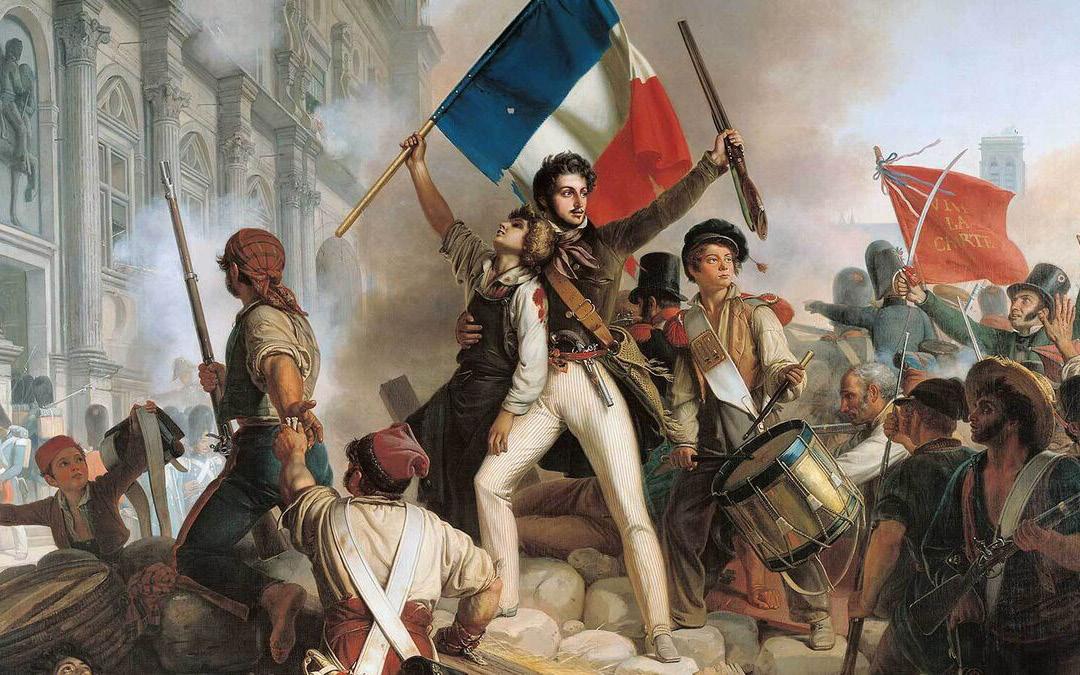 – Misattributed to Thomas Jefferson
– Misattributed to Thomas Jefferson
What we must realise is that the people can be swayed, the people can be lied to. We certainly do not live in the utopian world dreamed up by Plato, where the philosopher king rules for life, existing in impartiality, with great wisdom and intelligence. Instead, we live in the world where Adolf Hitler received 44% of the popular vote in 1933. As Plato feared, democracy can lead to the wicked becoming tyrants, despots, and dictators, undoing the method in which they rose.
Who is right, if not the people? The longheld, internationally spread, jury system reflects the belief that a random cross section of society can be the standard of truth. A jury can never be found to be wrong, it can be overturned due to new evidence, or misconduct, however whatever a jury decides is correct, is the truth. Material reality may conflict with that truth, but in law, it is the only truth that matters. Presently, it is not the morality of the ruling class that decides what is right, it is what the people think. The people have the ability to decide what is true,
what is false, by changing what they believe in.
You could say we live in a mobocracy. Perhaps We The People have too much power. But democracy has great benefits. It has institutionalised debate. Throughout the world it has made people more politically involved, not by risking their deaths for the revolution, but it has connected people to the policy making process. It has made our leaders seem less powerful, and us, the people, seem more. It has forced groups to make compromises and the leadership must now change their positions to appease the people, instead of the people changing to fit with the leader. Most importantly, democracy allows a society to develop, evolve and change. Democracy allows societies to have safe and (hopefully) non-violent changes of power.
From Osho, to Plato, to Churchill, people have pointed out the flaws in democracy. It is especially easy to do, particularly modern day where the number of failed democracies increases again and again. I feel that there must be a better form, there must be something to progress to. But perhaps, we are not ready for it yet.
- Angus Mackey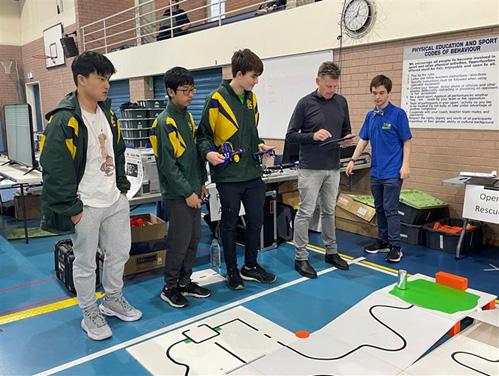
Edward: Hello everyone, welcome back to the third and final rendition of the Clubs and Societies section for the Trinity Inquirer this year. My name is Edward Peng and today, I am joined by a familiar face (previous interviewee), Jay Cleland. How are we today?
Jay: Good thank you.
Edward: That’s great to hear. So, could you tell us a bit about the Robotics Club?
Jay: Yeah sure, so the Robotics Club meets every Monday, Tuesday, and also one day after school and we are developing robots to compete in the RoboCup Junior competition. We develop the robots from scratch, unlike many other teams which used Lego components. So, we use 3D printing, Raspberry Pis, bread boards, wiring and various other components in an attempt to make sure we are not just learning the base of “Ok, this is block code,” but more enhancing people’s knowledge because Trinity already has good programming and D&T classes. For example, Junior School already has a Lego Robotics Club, so we are going a bit further with electronics and 3D printing.
Edward: Well, that is very interesting! I know you have touched on the RoboCup competitions, but could you tell us what the competition is about and what you do?
Jay: So RoboCup Junior is an international competition which is a ‘child’ of the RoboCup competitions which many big companies have spent lots of money putting forward robots in. It’s a way to test their robots in very similar competitions to what RoboCup Junior does. Probably the most famous, which I’m sure a few people have heard of, is the RoboCup soccer division that pops up on the news a few times a year and you normally see videos on YouTube – something with Robots smashing into each other and knocking around an infrared ball. That’s not what we’re competing in just yet. We’re going for something a bit smaller because this is our first year - the rescue line competition. In that one, there’s a line that you have to follow whilst avoiding some obstacles. There are some instructions like green, which means turn right, turn left, and red meaning stop. Sometimes, you might run into a
water bottle. We use ToF (Time of Flight) Lidar sensors to detect that water bottle and navigate around it, then we have to hook back up with the line, go over hills, up and down ramps and then the final challenge is to get to the end. Also, we have to remove a can from a green “chemical spill” area. It’s meant to be analogous to a city. You’re trying to save a whole bunch of people who are in a building you are trying to navigate through.
Edward: It’s really cool to hear the parameters of the competition and what you have to do within it? Could you tell us a bit about the Trinity Teams, like the size of them?
Jay: So we have around 14 people - we’ve got four teams, a secondary team and three Open teams. The difference is that open teams have to pick up the can and actually place it on a block while secondary teams just need to control the can and manoeuvre it out of the spill, along with a few other differences in difficulty. Our secondary team has four members, then we’ve got two open teams with four members and then a final open team with three members.
Edward: Oh that’s great to know you already have all these divisions already. You spoke about what you guys are doing in the present, so what about the past? What was the vision behind the club?
Jay: Well, the hope is that in the future we’ll be able to do many more divisions, like there’s a
maze division to solve a maze, and obviously the soccer division which I’m sure people would be happy to get around. And the hope is that we can enhance people’s knowledge around robotics, which is proving to be a key skill in the future with AI and everything. We can use smaller AI, we’re not this year because we had some problems getting equipment on time, and we’re having to scale back our hopes for now. But the hope is that in the future we’ll be using things like machine learning to solve the challenges as well as traditional solutions.
Edward: That’s some very ambitious yet achievable goals Jay! I’ve heard from a few teachers that the Robotics Club has found some major success in these competitions you have been talking about, could you perhaps expand on that?


Jay: Yes, we were quite surprised. We got a third place in our most recent competition: the Regionals competition. We went very well there, especially considering all of the delays I mentioned - it’s a global shortage for many things such as our Raspberry Pis. We managed to get a third place even though the robot that got third place was constructed in just a week and not even doing line following before the competition. So, we’re very proud of that team of course called “Wizard Pi”, a group of four Year 10’s.
And then of course, when we come back from the holidays in Term 4, we’ve got the Nationals competition which we’re hoping to contend at. We don’t think we’ll get to internationals, but you never know. We didn’t think we’d get to third place, so we might end up going to internationals next year.
Edward: That’s amazing to hear that you have these ambitions, from nationals and even internationals. With that being said, where do you see this club in the future?
Jay: Well, maybe in three years’ time, I’m hoping that many more people have joined the club. Hopefully we get a few more teams so that we can run across those divisions, perhaps some soccer or maze teams. The hope is that everyone gets to learn a bit more about how to use this technology and how the technology works behind all of the vague mirrors and black boxes that we’re told about in the media.
Edward: Are there any requirements to join this club and how can and why should you join?
Edward: Well, congratulations on the success of ‘Wizard Pi’. So, what other competitions do you guys have left now?
Jay: Well, this weekend we’ve got the states competition which we’re hoping to do well in.
Jay: Yeah, this is a club which probably has more requirements and more involvement than a few of the other clubs. It would probably be closer to the F1 in Schools competition in terms of requirements. We don’t really require too much programming knowledge. Of course, programming knowledge, design knowledge, engineering, CAD knowledge will always help you in this competition, but you don’t require it because if you don’t know anything, we can give you the Lego, we can give you the block code. We have all that. We’ve got some teachers who are amazing and can help you do all of the learning so that you can get up to speed with anything else. You can compete over several years so you can get better. Over time, robots get more advanced. The biggest requirement is probably a time requirement. You can email me at 635234@ trinity.vic.edu.au to join.
Edward: Well, that brings us to the end of the interview. Good luck for your future competitions, it has been a pleasure interviewing you and I hope the success of Robotics Club continues.
- Edward Peng (Clubs & Societies Editor) & Jay Cleland�� Submit Your Artwork: Original artwork needs to be sent to the Gallery, between late January and early March 2024, along with the completed form.
�� The Simpson Prize Competition for Year 9-10 Students
�� The Challenge: Investigate the question for 2024: ‘Commemoration of the Anzac tradition has widespread support in Australia despite different historical interpretations and debates about the nature and significance of the Anzac legend.’ How does your research support this view?
�� Winning Opportunities: Eight winners from each State/Territory will earn a chance to visit overseas battlefields and participate in Anzac Day commemorations.
�� Closing Date: Friday, November 3, 2024.
�� Learn More: For competition details, guidelines, and how to participate, visit https://www. simpsonprize.org/
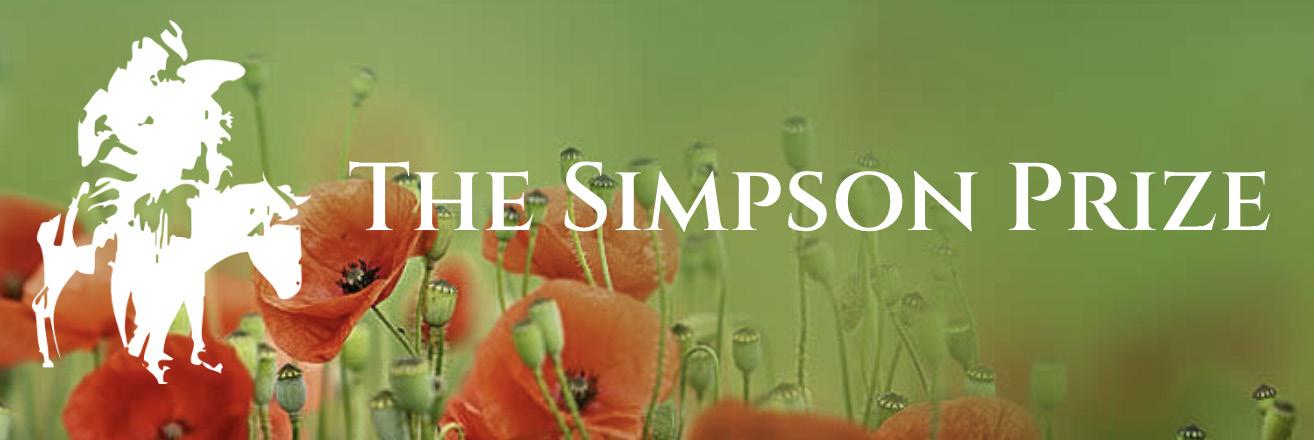
�� Learn More: Competition details will be published later this year and will be found at the following site: https://www.artgallery.nsw.gov.au/ prizes/young-archie/enter/

Young Archie Competition
�� Open to All Students Nationwide
�� Are you a budding artist? Do you have a creative spark waiting to be unleashed? The Young Archie Competition is your canvas to showcase your artistic talent!
�� The Challenge: Create a portrait of a person who is special and known to you and who plays a significant role in your life. Your masterpiece can be in any artistic medium, so let your creativity flow!
�� Unlock Your Potential with The Duke of Edinburgh Award
�� Explore, Learn, and Grow!
Ready to embark on an incredible journey of selfdiscovery and personal development?
Our school proudly offers The Duke of Edinburgh Award, a life-changing program for students like you!
�� What is it? The Duke of Edinburgh Award is an internationally recognised program that challenges you to set and achieve personal goals, develop new skills, give back to the community, and embark on unforgettable adventures.

�� Why Participate?
• Gain valuable life skills
• Boost your resume for future opportunities
• Make lifelong friends
• Experience new adventures
• Give back to your community
�� Learn More: Discover all the details about this amazing program at: https://dukeofed.com.au/ about-the-award/the-award/
�� Kaggle’s Titanic Competition: Unleash Your Coding Skills!
�� Calling All Budding Data Scientists and Coders
• What? Kaggle’s Titanic competition challenges you to predict passenger survival using machine learning.
• Why Join? Learn machine learning, apply coding skills to a real-world problem, and connect with a supportive coding community.
• Deadline: Ongoing – join anytime!
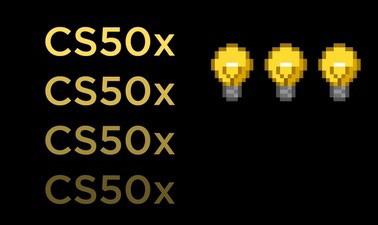
• Resources: Tutorials and discussion forums available.
�� Learn More: Details about this competition can be found at the following site: https://www.kaggle. com/c/titanic
A list of all Kaggle competitions and their prize money can be found at the following site. https:// www.kaggle.com/competitions

Engage in captivating lectures, hands-on laboratory experiments, and exciting activities led by our top researchers and scientists.
Limited Spots Available: Hurry, as places are filling up fast! Don’t miss out on this incredible opportunity to expand your horizons and embrace the world of science.
�� Registration: Secure your spot now by visiting: https://www.scienceexperience.com.au/when-where
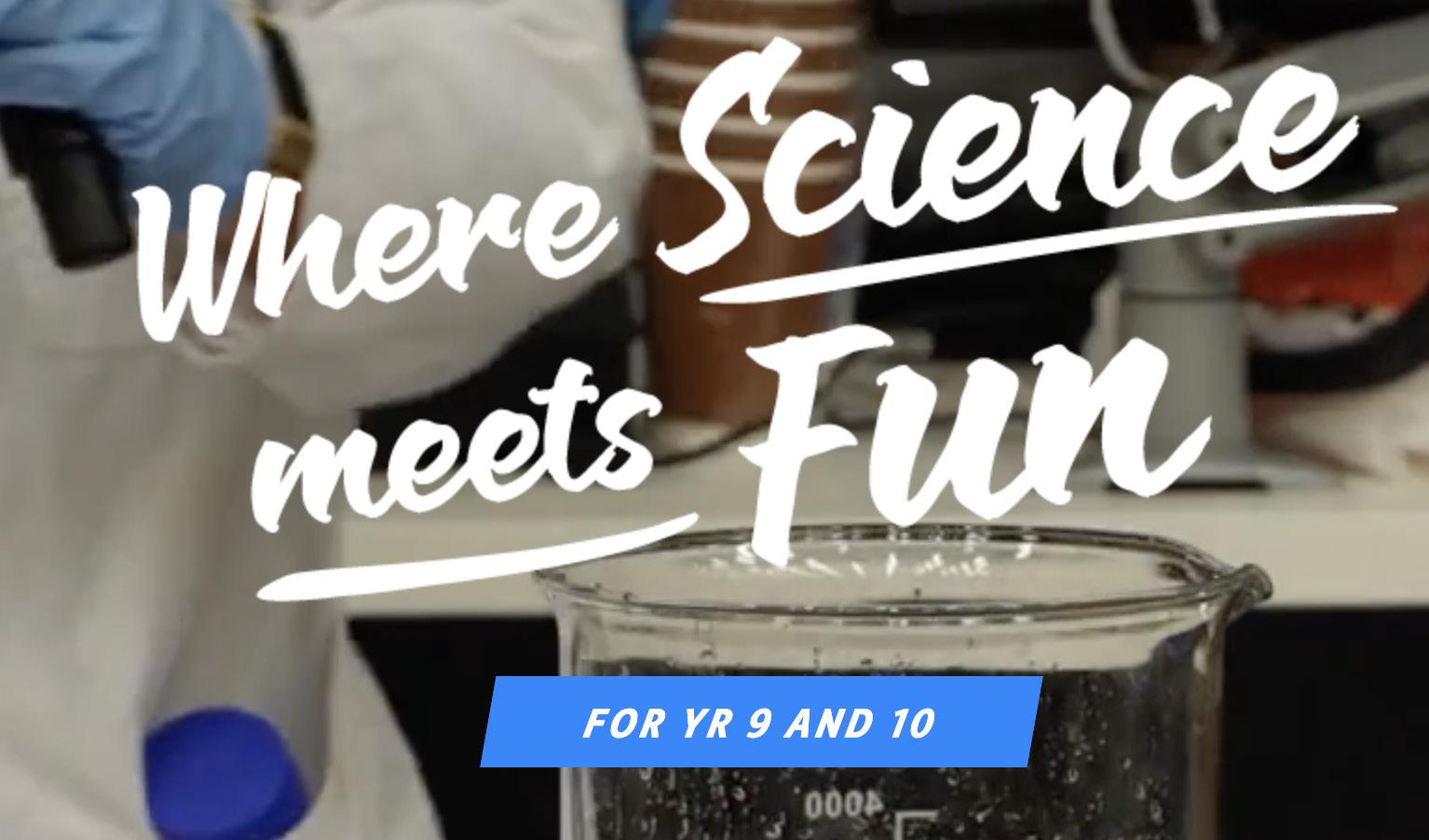
�� Dates: January 22–24, 2024
Year 9 and 10 students, are you curious about the fascinating world of science? Consider taking an unforgettable journey into the realms of discovery, experimentation, and exploration!
Experience University Life: Immerse yourself in the vibrant atmosphere of the University of Melbourne.
Harvard University CS50’s Introduction to Computer Science course on EdX - For Free!
�� Course Highlights:
• Learn: Discover the fundamentals of computer science.
• Code: Master the art of programming.
• Explore: Dive into intellectual enterprises of computer science.
�� Enrol for Free: Register today at https://www. edx.org/learn/computer-science/harvard-universitycs50-s-introduction-to-computer-science
�� More Free Courses: See all courses across different subjects on EdX at https://www.edx.org/ search?tab=course
If you have any inquiries or would like to participate in any of the competitions and challenges mentioned above, please do not hesitate to email Mrs Angela Kotsiras at KotsirasA@trinity.vic.edu.au. She will be able to answer your questions and, if needed, offer support for registration and access to resources and mentors.
Our food reporter Hugo Lie takes to the streets to review the Universal Restaurant’s Chicken Parma, and suffers an existential crisis.
If I found a Genie’s lamp, my wishes would be:
1. A long life full of happiness and prosperity,
2. The resolution of world conflict,
3. And a chicken parma from the Universal Restaurant, Carlton, before new management had taken over.
This $16.90 delicacy was an integral symbol of Melburnian culture; with dozens of people willing to line up every night for a taste of this sovereign panacea. Served on a plate the size and shape of Captain Cook’s vessel, this fat piece of golden breaded goodness laid on top of beer-battered chips as well as herbs and vegetables imported directly from the home of the parma, Geelong.
The first bite of this bonne bouche is indescribable. Friends of mine and fellow parma enjoyers have related it to the innocence of their first love; reminiscent of a time before responsibility, a time before evil had established its presence in our tiny world. As the melted cheese and tomato sauce penetrates the top of your tastebuds, the chicken cooked to perfection and the breadcrumbs launch an unwavering assault on the rest of your mouth, resulting in intangible emotions of pure bliss rushing all over your body.
Each bite of the meal evokes a fresh tenderness; almost as if Italy herself was embodied every time your tongue caressed the chicken. Paired with a $9 milkshake more costly than my predicted future income, the Universal experience cannot be described as anything but divine.
In recent, unfortunate days, however, Melbourne’s beloved Universal experience has been corrupted. With the grace of malaria, the new management has caused an absolute degeneration of quality. My latest experience with Universal, will most definitely be my last.
I had gone with some of my uninitiated associates, as we were hungrily scavenging around Carlton for a feed before our movie screening. I had firmly suggested that we should head down to Universal, so that my friends could take a glimpse unto what heaven truly was.
I was expecting pure bliss as my mouth opened to take my first bite of my parma.
I was not expecting it to taste like fish.
Confused with the stark contrast between horrid taste in my mouth and the unassuming piece of tomfoolery in front of me, I double, triple, and quadruple checked my order with the underpaid waiter before my realisation of how far the greatness of this sanctuary has fallen.
A transcendental feeling of betrayal embodied me, worse than how the citizens of Trachis must have felt when they were betrayed by Ephialtes. I felt my eyes water. Not of joy, as precedent would imply. But of grief and torment, as Priam felt when he saw the corpse of his beloved son being desecrated outside the walls of Troy.
This place of bliss that worked a rare break into my monotonous, sleep deprived VCE lifestyle was taken from me. It was stolen. The restaurant I grew up with, that had my heart, my dreams, my childhood memories of innocence and glee, was corrupted by none other than soulless corporate greed. This moment was a “red pill” of sorts. It awoke me from my 17-year childhood slumber, blind from reality, blind from the depraved pursuit of profit margins at the expense of society’s happiness.
It was then when I realised that my childhood was coming to its final chapter; the cold, bleak reality of future adulthood was starting to settle in.
I long for a taste of the Universal chicken parma. The taste of my childhood innocence.
- Hugo Lie
Following the commercial success of Barbie, we thought we’d finish the year off with some KenKens...
A 4 x 4 grid means you use the numbers 1, 2, 3, and 4. In a 5 x 5 grid, use numbers 1 to 5. The numbers in each heavily outlined set of squares, (cages) must combine (in any order) to produce the target number in the top corner using the mathematic operation indicated (+, -, ×, ÷). Use each number only once per row, once per column.
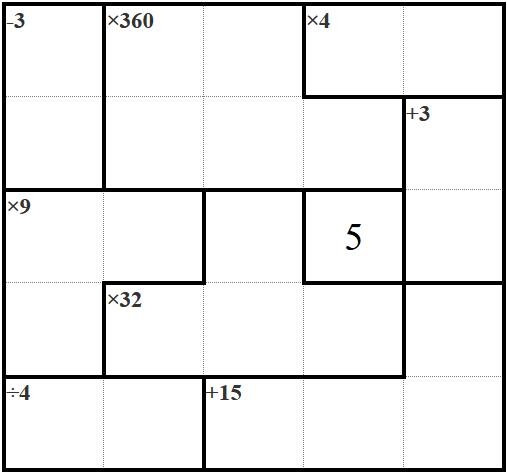


A number can be repeated within a cage as long as it isn’t in the same row or column.
We’d love this magazine to truly reflect the thoughts and ponderings of the inquiring minds of students across the school, and the depth of intellectual and cultural life here at Trinity. With this in mind, we are keen to accept Op-Eds, letters, freelance pitches/articles or even feature story content suggestions from any and all students. (That means you!)
If this sounds like something you’d be interested in, please reach out to us at 615152@trinity.vic.edu.au (Lucas van den Berg) or 614070@trinity.vic.edu.au (Alastair Murphy).
Page 1, On Curiosity: Image Source: https://photojournal.jpl.nasa.gov/catalog/PIA19920
Page 2, Nuclear Power: The Future of Energy:
https://www.scientificamerican.com/article/what-is-the-future-of-fusion-energy/#:~:text=Most%20experts%20agree%20that%20we%27re%20unlikely%20 to%20be,emissions%20before%20then%2C%20fusion%20can%20be%20no%20savior.; https://sciencebriefss.com/faq/how-does-nuclear-fusion-nobreak-the-laws-of-thermodynamics/#:~:text=Nuclear%20reactions%20appear%20to%20violate%20both%20the%20Laws,the%20system%20remains%20 constant%2C%20it%20just%20changes%20shape.; https://www.bbc.com/news/science-environment-60312633; https://www.reuters.com/business/ energy/us-scientists-repeat-fusion-power-breakthrough-ft-2023-08-06/; https://www.theverge.com/23508872/nuclear-fusion-power-clean-energybreakthrough-explained
Page
Figure 1 – Nasa Exoplanet Exploration. Ed. Kristen Walbolt. 2 April 2021 [https://exoplanets.nasa.gov/search-for-life/habitable-zone/ last accessed: 3 December 2022]; Figure 2 – Khan Academy. Ed. Sal Khan. 9 March 2016 [https://www.khanacademy.org/science/physics/what-is-friction last accessed: 5 December 2022]; Nasa Space Place. Ed. Heather Doyle. 7 December 2022 [https://spaceplace.nasa.gov/what-is-gravity/en/ last accessed: 4 December 2022]; Len Academy. Ed. Alfred Ajibola. 17 December 2019 [https:// www.len.com.ng/csblogdetail/381/Importance-of-Gravity last accessed: 5 December 2022]; National Library of Medicine. Ed. Natalia Battista. 27 April 2021 [https://www.ncbi.nlm.nih.gov/pmc/articles/PMC8123809/ last accessed: 7 December 2022]; NASA. Ed. Lydon B. Johnson. 1 July 2013 [https://www. nasa.gov/64249main_ffs_factsheets_hbp_atrophy last accessed: 8 December 2022] J W Wolfe and J D Rummel. “Long-term effects of microgravity and possible countermeasures.” Advances in Space Research 12:1 (1992): 281-284
Page 8, On Semantics: Image from Khlebnikov’s book Zangezi (1922)
Pages 9&10, How Does Language Shape Our Thoughts and Reality?: https://byrnehobart.medium.com/the-pirah%C3%A3-are-off-by-one-9c77eb66a6d9; https://www.youtube.com/watch?v=asM39tfblMQ&t=73s
Pages 11&12, How Good Are Democracies Really?: https://ourworldindata.org/democracy; Fighting at the Hotel de Ville French Revolution (Art Images / Contributor / Hulton Fine Art Collection / Getty) Page 18, KenKen Puzzles sourced from https://wilsoa.github.io/Gengen/#WzUsNSwxNjk2MTM1MjUwNzI5LDUsZmFsc2VdOjpbMSwxLDEsMSwwLDAsMCww LDAsMCwwXQ==; instructions from https://www.kenkenpuzzle.com/
Cover Image: Penrose Tiling from https://misc.0o0o.org/penrose/
